Trent Wright Appointed to ICBA Cyber & Data Security Committee
Idaho Bankers Association to advocate on behalf of the nation’s community banks
Press Release: City, State. (March 28, 2024)—The Independent Community Bankers of America® (ICBA) today announced that Trent Wright, President and CEO of the Idaho Bankers Association was elected to serve on ICBA’s Cyber & Data Security Committee ICBA is the nation’s voice for community banks and is committed to its founding mission to create and promote an environment where community banks flourish.
“Community banks, as relationship lenders, prioritize the needs of their customers and serve as trusted stewards of their financial future,” said Wright. “I’m proud to be a community banker and honored to be called upon to help ICBA safeguard our industry by underscoring the vital role community banks serve in our nation’s economy and working to ensure a strong, diversified financial sector that benefits every American.”
In addition to helping shape and promote ICBA’s national policy positions and programs, Wright’s duties include engaging in grassroots activities in Idaho to advocate pro-community bank policies and serving as a liaison between community banks and ICBA leadership in Washington, D.C.
“Trent is an esteemed civic leader, generously contributing his time to champion and advance the crucial role of community banks within our financial system,” said ICBA Chairman Lucas White, president of the Fountain Trust Co. in Covington, Ind. “We are honored to leverage Trent’s talents and resources in support of ICBA’s efforts, and we extend our sincere gratitude for his unwavering commitment to securing a vibrant future for community banking.”
About ICBA
The Independent Community Bankers of America® has one mission: to create and promote an environment where community banks flourish. We power the potential of the nation’s community banks through effective advocacy, education, and innovation.
As local and trusted sources of credit, America’s community banks leverage their relationship-based business model and innovative offerings to channel deposits into the neighborhoods they serve, creating jobs, fostering economic prosperity, and fueling their customers’ financial goals and dreams. For more information, visit ICBA’s website at icba.org.

